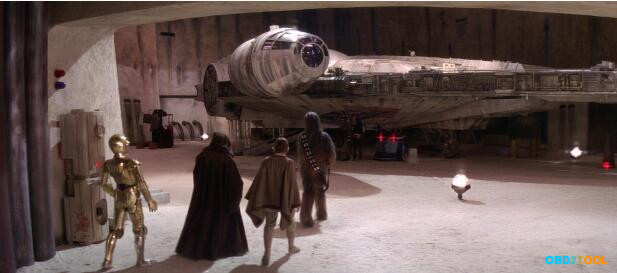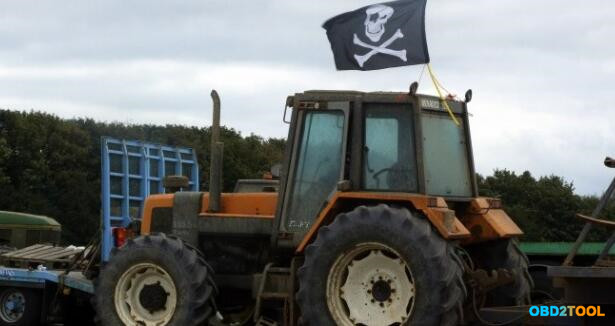The ability to modify a vehicle you’ve purchased is, in many ways, a fundamental part of America’s car culture — and, to some extent, embedded in our culture, period. From the Fast & Furious saga to Han Solo’s “She may not look like much, but she’s got it where it counts, kid. I’ve made a lot of special modifications,” we value the right to tinker. More practically, that right can be critically important when it comes to fixing heavy farm equipment. That’s why it’s significant that companies like Heavy Duty Truck Scanner John Deere and General Motors have joined forces to argue that no, you don’t actually own the equipment you purchase at all.

The tractor and farm equipment manufacturer doesn’t mince words. “In the absence of an express written license in conjunction with the purchase of the vehicle [to operate its software], the vehicle owner receives an implied license for the life of the vehicle to operate the vehicle, subject to any warranty limitations, disclaimers or other contractual limitations in the sales contract or documentation.”
GM, meanwhile, alleges that “Proponents incorrectly conflate ownership of a vehicle with ownership of the underlying computer software in a vehicle.” The problem with these arguments is that while existing software laws confirm that individuals are licensing code rather than purchasing it when they buy a license from Adobe or Microsoft, the cases in question did not generally anticipate that the code would be used to artificially create extremely high barriers to repair. As tractors have gone high tech, John Deere Diagnostic Kit has aggressively locked away critical information needed for adjusting either aspects of the vehicle’s timing and performance or the necessary information to troubleshoot problems. Kyle Wiens wrote about the issue a few months back, noting how John Deere’s own lockouts and high-tech “solutions” have supposedly caused a spike in demand for older, simpler vehicles. Farmers, it seems, don’t like having to pay expensive technicians. As a result, the used tractor business is booming.
Both companies go on to assert that the Copyright Office shouldn’t consider allowing tractor owners or car enthusiasts make any sort of modifications to their vehicles because doing so might enable piracy through the vehicle entertainment system. While this is theoretically possible in a modern car, I suppose, if improbable, it’s downright laughable in a tractor. A new tractor can cost upwards of $100,000 — is anyone seriously going to pirate One Direction CDs while ploughing a field?
The other argument — that users will abuse these capabilities to engage in unsafe or dangerous activities — ignores the fact that Americans enjoyed this level of tweaking and tuning for decades. True, a modern computer system might make it easier to modify certain characteristics, but it’s not as if the concept of tuning a car got invented alongside OBD-II Auto Scanner Tool.
John Deere makes a number of scare tactic allegations around the very idea of a modifiable tractor, including this gem: “Third-party software developers, pirates, and competing vehicle manufacturers will be encouraged to free-ride off the creativity and significant investment in research and development of innovative and leading vehicle manufacturers, suppliers, and authors of vehicle software. The beneficiaries of the proposed exemption will not be individual vehicle owners who allegedly want to repair, redesign or tinker with vehicle software, but rather third-party software developers or competing vehicle manufacturers who — rather than spending considerable resources to develop software from scratch — instead would be encouraged to circumvent TPMs in order to make unauthorized reproductions of, and derivative works based on, the creativity of others.”
Just in case you’re confused, we’re still talking about tractors — not someone stealing the crown intellectual property of a literary genius.
The long-term risk of locking-out repair
I’ve never modded my car and I haven’t been near a tractor in decades. But the reason this fight matters is directly rooted in the ability to repair anything. With multiple manufacturers shoving the concept of an Internet of Things full throttle, how long before basic appliance repair has become something you can only perform with a licensed technician? It’s not an altogether crazy concept. Device and appliance manufacturers have fought to build repair monopolies for decades in various industries, with generally limited success.
Thanks to the DMCA and the rules of software licensing, those efforts could finally succeed in the 21st century. As the IoT advances, virtually everything can be locked off and limited to only those shops that can afford sophisticated diagnostic equipment — thereby limiting user choice and freedoms.

